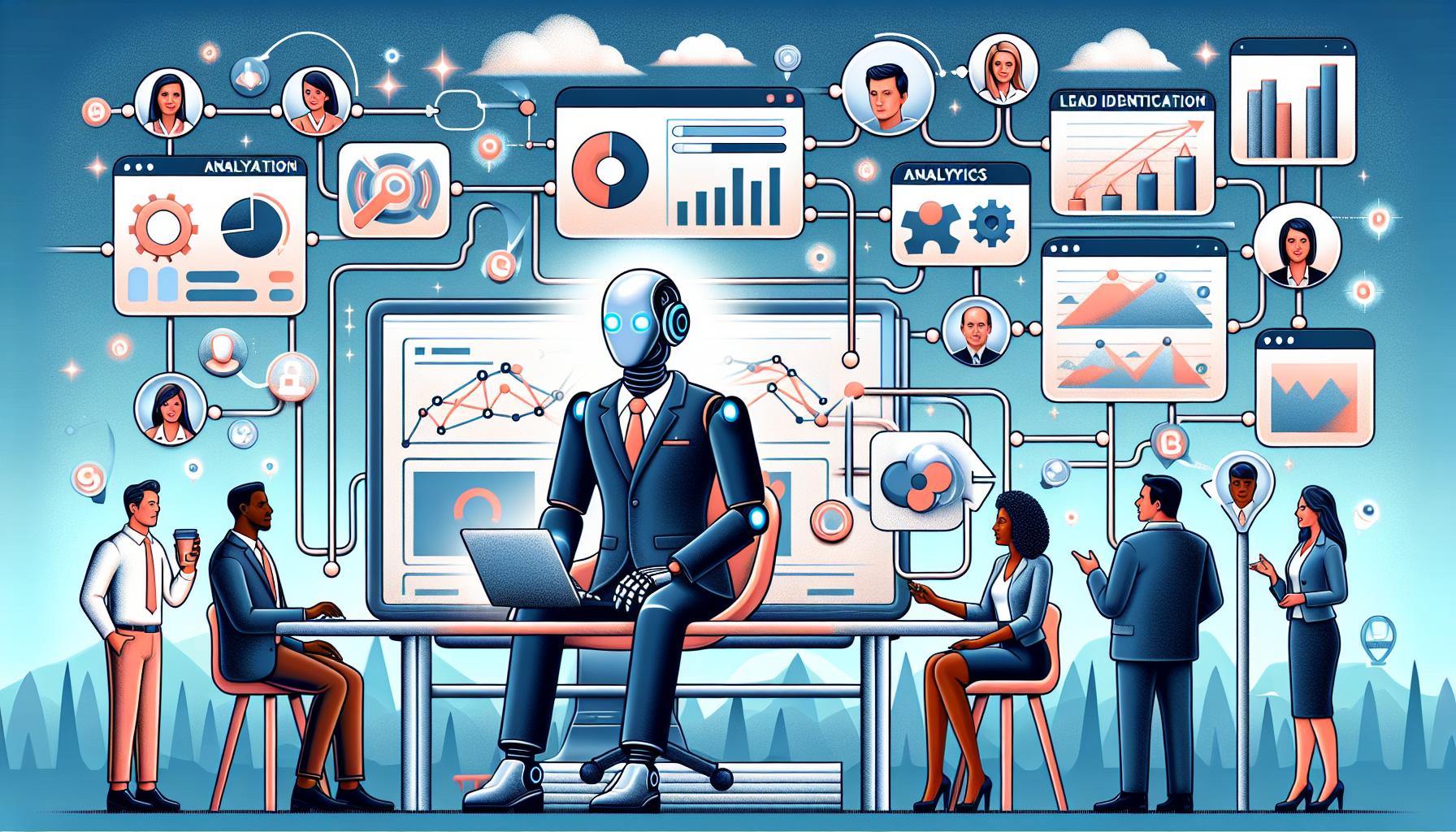Boosting B2B Sales: The Role of AI Sales Agents in Lead Generation

Introduction
In the dynamic world of B2B sales, staying ahead of the competition requires more than just traditional methods. The integration of artificial intelligence (AI) into sales processes is proving to be a game-changer, particularly in the realm of lead generation. AI sales agents are not only capable of identifying potential leads but also analyzing their viability and nurturing them through personalized communication. This blog delves into how AI sales agents are transforming B2B sales lead generation efforts, providing practical insights from companies that have successfully implemented this technology to improve their sales pipeline and drive growth.
The Power of AI in Identifying Potential Leads
One of the most significant advantages of AI sales agents is their ability to identify potential leads with remarkable accuracy. Traditional lead generation methods often rely on manual processes, which can be time-consuming and prone to human error. AI, on the other hand, leverages vast amounts of data to pinpoint prospects who are most likely to convert. By analyzing patterns and behaviors, AI sales agents can identify leads that may have been overlooked by human sales teams.
For instance, AI can analyze data from various sources such as social media, website interactions, and purchase history to build a comprehensive profile of potential leads. This allows sales teams to focus their efforts on high-quality prospects, thereby increasing the chances of conversion. Companies like LeadGenius have successfully utilized AI to enhance their lead generation efforts. By using AI to sift through massive datasets, they have been able to identify high-potential leads more efficiently than ever before.
Analyzing Lead Viability with AI
Once potential leads have been identified, the next step is to assess their viability. AI sales agents excel in this area by evaluating leads based on various criteria such as engagement level, company size, and industry relevance. This ensures that sales teams are not wasting time on leads that are unlikely to convert.
AI can score leads based on their likelihood to purchase, allowing sales teams to prioritize their efforts accordingly. For example, Salesforce's AI-powered tool, Einstein, uses machine learning algorithms to analyze lead data and predict which leads are most likely to convert. This helps sales teams to focus on the most promising opportunities, thereby improving efficiency and effectiveness.
Moreover, AI can continuously learn and adapt based on new data, ensuring that lead scoring remains accurate and up-to-date. This dynamic approach to lead viability analysis enables sales teams to stay agile and responsive to changing market conditions.
Nurturing Leads through Personalized Communication
Personalized communication is crucial in nurturing leads and guiding them through the sales funnel. AI sales agents can automate this process by delivering tailored messages to each lead based on their unique preferences and behaviors. This level of personalization is difficult to achieve through manual efforts alone.
AI can analyze data to determine the most effective communication strategies for each lead. For instance, it can identify the best times to send emails, the type of content that resonates most with the lead, and the optimal frequency of communication. Companies like Conversica have developed AI-powered sales assistants that engage with leads through personalized email communication. These AI assistants can handle initial outreach, follow-ups, and even responses to common queries, freeing up human sales representatives to focus on more complex tasks.
By nurturing leads with personalized communication, AI sales agents can build stronger relationships with prospects and increase the likelihood of conversion. This not only improves the efficiency of the sales process but also enhances the overall customer experience.
Real-World Examples of AI in B2B Sales
Several companies have successfully integrated AI sales agents into their B2B sales processes, achieving remarkable results. For example, InsideSales.com has developed an AI-driven sales acceleration platform that helps businesses identify and engage with high-potential leads. By leveraging AI, they have been able to increase their lead conversion rates and drive significant revenue growth.
Another example is Drift, a company that uses AI-powered chatbots to engage with website visitors in real-time. These chatbots can qualify leads, answer questions, and schedule meetings with sales representatives. This has enabled Drift to streamline their lead generation process and improve their overall sales efficiency.
Furthermore, Gong.io uses AI to analyze sales conversations and provide insights on how to improve sales performance. By understanding which communication strategies are most effective, sales teams can refine their approach and increase their chances of success.
Conclusion
AI sales agents are revolutionizing B2B sales lead generation by identifying potential leads, analyzing their viability, and nurturing them through personalized communication. The practical insights from companies using AI sales agents demonstrate the technology's potential in driving B2B growth and efficiency. As AI continues to evolve, its role in sales processes is likely to become even more significant.
However, there are still questions that need to be addressed. For instance, how can companies ensure that their AI sales agents are compliant with data privacy regulations? What measures can be taken to prevent AI from making biased decisions? As businesses continue to adopt AI in their sales processes, it is crucial to address these challenges to maximize the benefits of this technology.
In summary, AI sales agents offer a powerful solution for B2B sales lead generation. By leveraging AI to identify, analyze, and nurture leads, businesses can improve their sales pipeline and drive growth. To learn more about how AI can transform your sales processes, consider exploring case studies, attending industry conferences, and engaging with AI technology providers. The future of B2B sales is here, and AI is at the forefront of this transformation.




